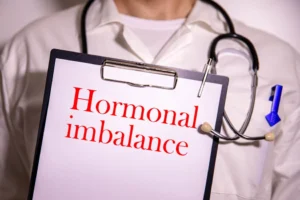Depression is a common mental condition that affects adults in the United States and other developed nations. Feelings of sadness and hopelessness characterize it, loss of interest in activities, changes in sleep patterns, weight gain or weight loss, fatigue, and low self-esteem. Many have turned to different medications to alleviate this problem, and one of these medications is ketamine therapy.
Depression Happens To Most Of Us
Depression is a mental illness that affects one in five adults during their lifetime. It can be both a short-term and long-term condition. There are many different types of depression, including clinical depression and major depressive disorder. While they are different, they share the same symptoms.
Depression can cause significant impairment in work, school, and family life, leading to social isolation and feelings of hopelessness.
Will Antidepressants Medications Help?
A study conducted by the University of Chicago found that antidepressants work better than other treatments for people who have had depression for less than two weeks. The study also found that antidepressants work better than placebo for people who have had depression for more than two weeks.
The side effects of the antidepressants are also essential factors to consider when choosing an antidepressant medication. Some antidepressants may cause weight gain, insomnia, and sexual dysfunction, while others may cause drowsiness and dry mouth.
Varying Success
While antidepressants do work, sometimes, they do not help someone at all. Some people have taken different antidepressants for years, and they still don’t see any results. Antidepressants can effectively treat mental health issues, but they are not a miracle cure.
Perhaps it’s time for you to change your medications. Some of the effective medicines for depression is ketamine. Is ketamine therapy the solution when other medications are ineffective? What makes ketamine different from the rest?
Before answering those questions, we first have to explore what ketamine is.
What Is Ketamine?
Ketamine is a dissociative anesthetic that affects how your brain processes information. It’s most often used medically to sedate patients in the operating room and help them recover faster from anesthesia.
Ketamine is part of the class of NMDA receptor antagonists, which block nerve signals from reaching the brain. The drugs are typically given by injection or intravenously during surgery or anesthesia procedures when patients cannot be awake for the procedure.
When Is Ketamine Used?
Ketamine has been used as an anesthetic since the 1950s. In the 1970s, it was discovered that ketamine had some antidepressant effects in patients with severe depression who had not responded to other treatments.
The drug was then approved by the U.S Food and Drug Administration (FDA) for use as an anesthetic in humans and has been widely prescribed since then for its antidepressant effects.
It is important to note that ketamine’s antidepressant effects are not permanent; they last only a few weeks after treatment ends.
Why Is Ketamine Used For Depression?
Ketamine is a drug that has been used for decades as an anesthetic, but it has recently been found to have antidepressant effects. Researchers then realized in the 1970s and 1980s that ketamine could alleviate depression in animal experiments.
However, this discovery was not finalized until the 1990s, when ketamine began being tested in humans. Ketamine’s antidepressant properties were proven when given to patients with treatment-resistant depression who did not respond to other antidepressants.
How It Works
The mechanism behind ketamine’s antidepressant effect is still precisely pinpointed.
Still, researchers believe there are two possible explanations for its ability to reduce mood disorders: Ketamine appears to affect glutamate, a neurotransmitter that plays a role in mood disorders. The other one is that ketamine enhances glutamatergic transmission by blocking NMDA receptors. The drug also blocks the reuptake of serotonin and norepinephrine, which are neurotransmitters released during stress and depression.
Ketamine also has the potential for treating anxiety disorders. In animal studies, it has been shown to inhibit the expression of stress-induced genes through epigenetic mechanisms.\
How Effective Is It?
The studies on the effectiveness of ketamine vary depending on many factors like severity of depression, dosage, and other conditions. Some people report feeling better after just one dose, while others need multiple doses to feel any improvement.
Some studies show that ketamine can effectively treat depression within hours of use, while other studies show that it takes more than a week for the effects to take place.
Reduces Unipolar And Bipolar Depression
A recent study has shown that ketamine therapy has significantly reduced the severity of unipolar depression as soon as 1 to 24 hours, lasting for 1-2 weeks. In comparison, certain antidepressant oral medications took up to 2 weeks to take into full effect.
The same study also has shown promises when dealing with bipolar depression. The study found that bipolar depression has also been reduced as quickly as 4 hours after application, and its effects were consistent for the next 24 hours. The ketamine’s full effects lasted for 3 days, while some reductions are still apparent after 7 days.
Reduces Suicidal Thoughts And Affective Disorders
Recent research has also shown some evidence that ketamine therapy reduces suicidal thoughts. However, they aren’t sure how it works. But the downside is that ketamine can only do so much to prevent suicidal thoughts—the effects will soon fade.
Researchers are working to extend its effects, and they aren’t sure that more doses mean lesser suicidal thoughts. They are still working on that.
Other research has found some therapeutic applications for ketamine for psychiatric disorders such as anxiety, substance use disorders, and PTSD.
Who Can’t Use Ketamine Therapy?
The only people who cannot use ketamine therapy are those who have an allergy or sensitivity to it, have a history of substance abuse, or have a condition that might be worsened by ketamine therapy, such as schizophrenia.
As long as the ketamine therapy is applied in a clinical setting and is administered by medical experts, the treatment is safe.
Takeaway
Depression hinders and clouds your thoughts, making the daily routine a more challenging task. Although you may feel burdened, remember that there is help for you as long as your reach out. So make sure to contact and reach out to our clinic, A Better Solution Wellness. We offer services that help both your physical and mental health achieve wellness.






